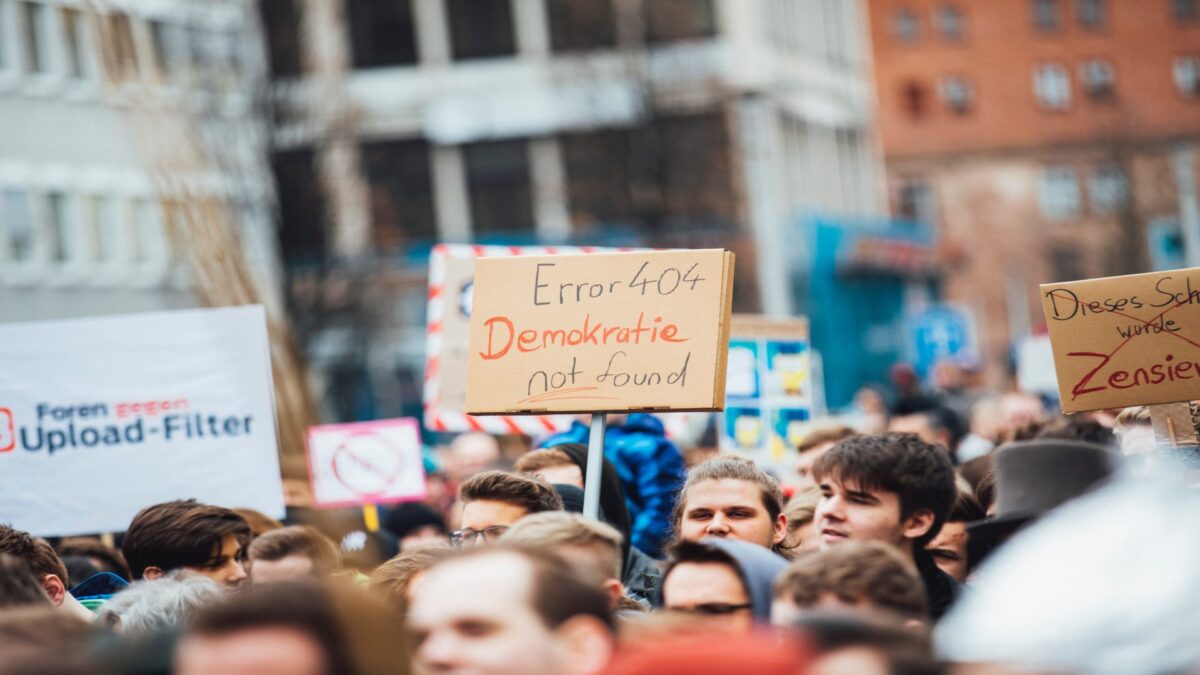Democracy in a State of Hypochondria
«A democracy in crisis is, above all, a democracy that does not perceive itself to be in crisis. That is why a healthy democracy looks more like a democracy suffering a bout of hypochondria rather than an apparently muscular and glossy specimen, boasting low levels of cholesterol»

Unsplash
My elders would tell me that, at the start of the Transition, it was common to hear many people moan over the different ills of the time —or what were perceived as ills—by saying, «That’s what you get with democracy and so little shame.» An association in our country which is based on the fact that political liberation and liberation from morality supposedly went hand in hand. But the association has existed and exists also in other countries, in Italy, for example, where the Italians tend to blame everything on those in government, who have made historical headway only to earn the sarcastic comment in the statement, «It’s raining, what a stinking government we have.» Everywhere democracy exists there also exists a complaint levelled against it, its imperfections and inefficiency, all epitomized in the different leaders who at any given time represent it.
It’s nothing new; you need only cast an eye at the archives of the periodical press to find news every year, in every democratic country, going on with a certain degree of alarm at the deterioration and crisis of democracy. Do a Google search: type in «crisis in democracy book», plus a date for every year from 1950 onwards, until today, and get ready to count how many books appear in different languages. Because any democracy that perceives itself as stable is a more fragile democracy, capable of incubating evils with a delayed but certain effect. As Ramón González Ferris explains, in his brilliant book published recently by Debate, La trampa del optimismo [The Optimism Trap], this is what happened in the triumphant ten years after the Cold War, in the 1990s, when Francis Fukuyama spoke of the end of history and there was a general relaxation on too many fronts, from finance to terrorism, with incipient inequality and increasing social dissatisfaction along the way. It was even thought that there was no point any longer to the study of international relations and geopolitics. Let us observe on the other hand, what the world of global power struggles looks like in the years of China’s resurgence as a superpower. Or take in the fact that Russia can still put up a fight, even if it is heir to the losing side in that clash between blocks that threatened to extinguish life on Earth.
That there has been a general deterioration of democracies and their institutions, as well as a deterioration of the public conversation that ought to sustain democracy, is undeniable. It hasn´t been helped by two phenomena that go hand in hand, namely the Great Recession and the boom in social media. Many countries, such as Poland or Hungary have experienced authoritarian regression, which answers as much to cultural or identitarian kinds of anguish as to material shortcomings. Nonetheless, and unlike other decades in which democracy enjoyed better health, no potential dictator dares to deny today the basic formal garb of democracy, whether it be the vote, electoral colleges or an apparent separation of powers. This is an intangible advance that is hard to see from within the eye of the storm, but which reveals a soft democratic power that cannot be done away with so easily, even in these years of the pumped-up muscles of hard power.
A democracy in crisis is, above all, a democracy that does not perceive itself to be in crisis. That is why a healthy democracy looks more like a democracy suffering a bout of hypochondria rather than an apparently muscular and glossy specimen, boasting low levels of cholesterol. But there can be no doubt either that democracy, besides being morally virtuous and constitutionally beautiful, must be effective. And there you have its recent weakness exacerbated in the wake of a crisis in 2008. After we heard resigned speeches telling us that there was no alternative, the resolution of the crisis was perceived as unjust and inefficient. Goethe said he preferred injustice to disorder. What recent years have taught us is that democracy works the other way around where these factors are concerned and that many voters choose the opposite, preferring disorder to injustice.
Trad.: Roberta Ann Quance
